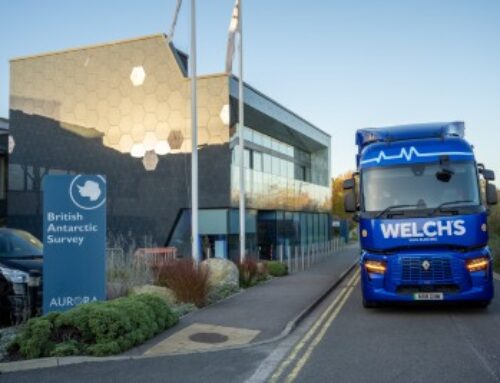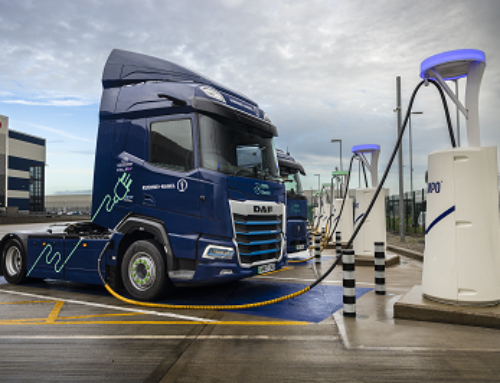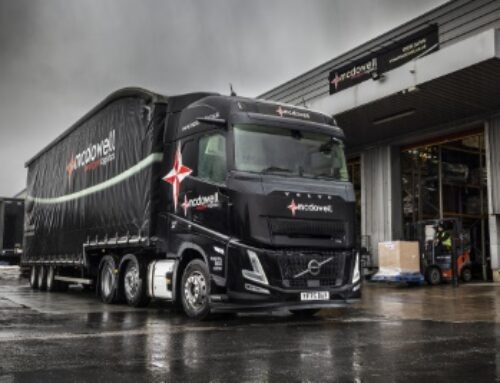Changes proposed for DVS Safe System
 Transport for London is consulting on changes to the Direct Vision Standard (DVS) regulations that it imposes on heavy trucks entering the capital, which will introduce more stringent rules regarding the safety equipment that must be installed on vehicles that fail to meet adequate levels of driver direct vision from the cab.
Transport for London is consulting on changes to the Direct Vision Standard (DVS) regulations that it imposes on heavy trucks entering the capital, which will introduce more stringent rules regarding the safety equipment that must be installed on vehicles that fail to meet adequate levels of driver direct vision from the cab.
The existing Safe System requirements – which include Class V and VI mirrors, cameras, sensors, audible warnings, signage and side-underrun prevention – are designed to help protect vulnerable road users such as cyclists and pedestrians, providing an alternative route to acquiring a TfL safety permit in cases where a vehicle does not meet a high enough DVS star rating.
Under the proposed changes, a Progressive Safe System will now be adopted, taking technical advances made since the original requirements were drafted into account.
Proposed changes include updating existing guidance on the use of mirrors and mirrorreplacement camera monitoring systems (CMS); the requirement for CMS fitted on vehicles to eliminate any remaining blind spots on the passenger side; and sensors ensuring full coverage down the passenger side of all vehicles to detect vulnerable road users, which must not activate in relation to roadside furniture or stationary vehicles.
Further proposals include the fitting of moving off information systems (MOIS) to the front of a vehicle to prevent collisions at the frontal blind spot zone when a vehicle moves off from rest; and the fitment of audio warning technology to all vehicles, including those with left-hand drive to ensure all vehicles operating in London have the ability to warn of an intended manoeuvre.
Launching the consultation, TfL said: “Data shows that fatal collisions involving HGVs where vision is cited as a contributing factor halved from 12 in 2018, the year before the scheme was introduced, to six in 2021. “Moving to a new Progressive Safe System is vital to TfL’s and the Mayor’s continued efforts to meet the Vision Zero goal of eliminating all deaths and serious injuries from London’s transport network by 2041.
“TfL estimates that these new safety requirements will be applied to around 165,000 vehicles, which is 90 per cent of the existing fleet operating in London.”
Trade organisation Logistics UK called for further specification details to be released to ensure operators are able to fully engage and respond.
Chris Yarsley, Logistics UK’s senior policy manager for road freight regulation, said: “The consultation document currently provided by TfL states that the specification for various safety features, including sensors, will be made available once the period for responses closes. This detail is vital as operators cannot provide a full response without clarity on what additional features will be required. Industry wants to fully engage however, this requires full understanding and detail that currently, the consultation does not provide.”
He added that Logistics UK was encouraged by the guidance that further safety features should be retrofittable to existing vehicles and not be cost prohibitive, but pointed out that operators willingly engaged with the initial standards, incurring multiple costs to upgrading existing fleets.
He continued: “It is now important that these upgrades, which were made in good faith, are not fully superseded. Operators are facing increased costs due to rises to inflation, net zero transition costs and increased fuel prices.
“The logistics industry operates on tight profit margins and, like other sectors of the economy, is facing increased financial strain. Logistics UK is urging TfL to consider not just the cost of purchasing, but also the potential costs of the vehicle(s) being out of service while fitting new systems.
“Logistics UK is also calling for TfL to consider the national shortfall of available technicians needed to make these upgrades, when considering timeframes for implementing the increased safety standard.
“Industry fully supports the need to increase road safety and wants to work together with TfL to achieve this; it is vital we get this right. The consultation… is a welcome step towards this, however further clarity is needed to ensure this next phase in increasing the safety standard is practicable and effective.”
A spokesman for the Road Haulage Association said: “We are clear that road safety is everyone’s responsibility, and we are committed to promoting the highest safety standards in our industry. “We will study the detail of the proposed DVS changes to ensure practical measures that improve road safety are implemented.”
The consultation, entitled ‘Making London’s lorries safer’, closes on 3 April, and can be accessed at: haveyoursay.tfl.gov.uk













